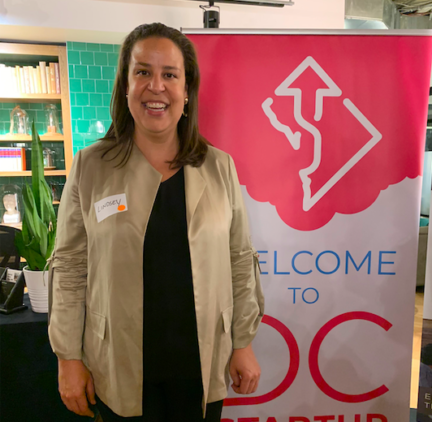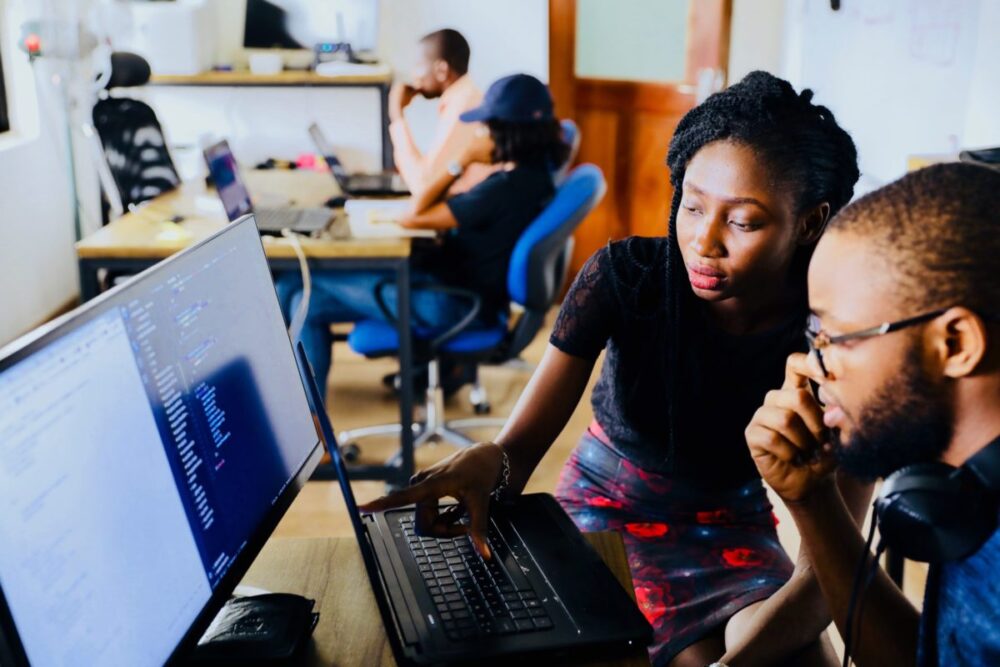
This editorial article is a part of Racial Equity in Tech Month of Technical.ly's editorial calendar. This month’s theme is underwritten by Verizon 5G. This story was independently reported and not reviewed by Verizon before publication.
When Mayor Muriel Bowser and the D.C. Office of the Chief Technology Officer (OCTO) created the Tech Together DC initiative to work on digital equity in the city last summer, the pressure was on.
First, it needed to help connect student households to the internet ahead of the school year, and there were a few sour notes left from the previous budget season where cuts to digital equity initiatives were proposed. The initiative, which brings together partners from local government, nonprofit, academic and industry representatives, was designed to help close the digital divide and grow tech inclusion in the District. In all, there are 48,000 households in the District that either lack internet, have unreliable internet or only have access to device such as a smartphone, per OCTO.
One year later, D.C. Chief Technology Officer Lindsey Parker said the focus of Tech Together is a little broader. Really, it’s about the overall D.C. tech ecosystem and its impact.
“Let’s use the power of this industry focused on inclusive innovation, let’s use the power of the government focused on making sure that we’re providing better service delivery, and work together to make sure that those approximately 48,000 households…have regular, reliable access to internet,” Parker said. Along with broadband, access needs to include a computing device that can be used for things like digital resumes, not just a smartphone, she said.
Tech Together DC has four major focus areas for the city’s tech ecosystem: ensuring reliable, high-quality access to internet, providing a device and ongoing support, demystifying and providing information on tech and boosting tech savviness in city government. Parker said the initiative continues to focus on providing internet access, particularly in Wards 5, 7 and 8. All three wards have primarily Black or BIPOC residents, meaning racial equity is also at the forefront of the initative.
“There’s a kind of a human element, but there’s also an economic development element that grows the tech industry and our region, which helps grow our tax base,” Parker said. “That allows us to do even more when it comes to investing in those D.C. values that the mayor talks about: ending homelessness, providing a great education, providing a safe neighborhood.”

Lindsey Parker, D.C. government’s CTO. (Photo by Michelai Graham)
Despite last year’s budget tension, OCTO has big plans for Tech Together for the summer and into the fall. According to Parker, Mayor Bowser’s Fair Shot Budget for fiscal year 2022 put $26.5 million aside from federal funding to pay for devices for residents in need, which Tech Together DC will receive in October. An additional $5.2 million will be invested into a digital services team within D.C. government, including a business portal, data integration tools for gun violence prevention and finding better tech tools for a return to work study.
Tech Together also has plans to launch a new digital hub, likely in August, to feature tech job opportunities and career paths in one place. Parker hopes the new portal will help further business to business relationships in D.C., investor relationships and help give access to training programs that can help people break into the tech scene.
With the funding and the hub launch in mind, Parker said the challenge ahead to create digital equity in D.C. is making sure all of these investments are sustainable in the long-term.
It's about evening the playing field when it comes to access to opportunity.
“How do we make sure that whatever we’re doing today, that we can make sure [it] continues? And if it needs to grow, if it needs to change, if we need to find a different avenue to move down tomorrow, how do we make sure that whatever we’re doing today allows for that to happen?” she said.
A key component of the initiative, Parker said, is good relationships with the local tech sector to find new ways of working and collaborating. She said that a number of big industry players have already reached out to OCTO or are partnering with Tech Together DC, but she’s also hoping to make more headway with the DMV’s small businesses. She said they’re uniquely positioned to understand how Tech Together works, being more in touch with the local scene and residents. She hopes the initiative can help those businesses and relationships grow.
Most importantly, though, she said Tech Together and the local industry have a chance to rethink how the government works. More partnerships are going to be crucial to continue growing digital access.
“Access to technology and access to the internet is no longer a luxury. I think it might have been at one point, but it’s been 20 years, at least,” Parker said. “Now it’s about evening the playing field when it comes to access to opportunity.”
Join the conversation!
Find news, events, jobs and people who share your interests on Technical.ly's open community Slack

DC daily roundup: Startup founders offer praise; Howard U breaks application record; NavalX gets new director

DC daily roundup: Washington Post's AI collab; a greentech glossary; Halcyon's debut Climate Fellowship cohort

DC daily roundup: Inside UMCP's new ethical AI project; HBCU founder excellence; a big VC shutters MoCo office


